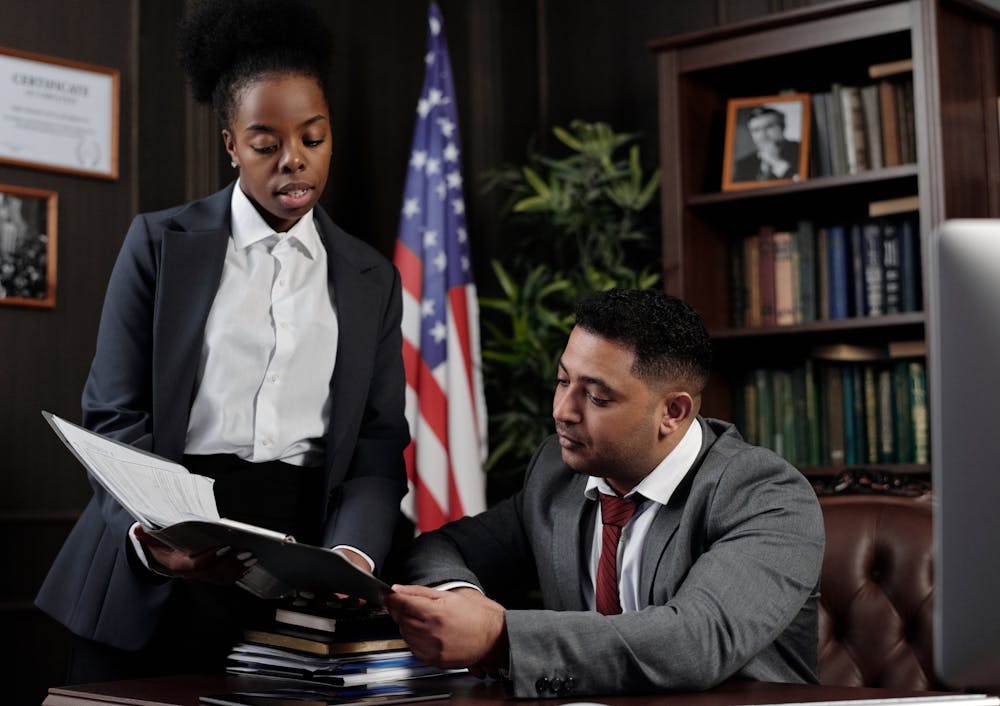Handling legal matters with confidence requires thorough investigation, proper documentation, and a strategic approach. Civil investigations play a crucial role in resolving disputes, gathering evidence, and ensuring legal compliance. Whether you are dealing with personal, business, or financial legal matters, a well-planned investigation can provide clarity and support informed decision-making.
With the right techniques and tools, individuals and businesses can conduct efficient civil investigations while maintaining professionalism and ethical standards. Understanding how to gather relevant information, verify facts, and collaborate with legal professionals ensures a smooth legal process and helps in achieving favorable outcomes.
Understanding Civil Investigations
Civil investigations focus on gathering evidence for non-criminal legal matters such as contract disputes, personal injury claims, fraud cases, and property disputes. These investigations aim to uncover facts, verify claims, and support legal actions. Unlike criminal investigations, which involve law enforcement, civil investigations are typically conducted by private investigator Ontario, attorneys, or involved parties. A well-executed investigation helps strengthen legal arguments, prevent fraud, and resolve conflicts efficiently.
Common Types of Civil Investigations:
- Personal Injury Cases: Gathering medical records, accident reports, and witness statements to support claims.
- Business Disputes: Investigating contract violations, financial fraud, or corporate misconduct.
- Property Disputes: Verifying ownership records, land surveys, and historical agreements.
- Family Law Matters: Collecting evidence for divorce settlements, child custody cases, or inheritance disputes.
- Employment Investigations: Examining workplace conflicts, harassment claims, and employee misconduct.
Essential Tips for Conducting a Successful Civil Investigation
1. Define the Investigation Objectives Clearly
Before starting an investigation, it is essential to establish clear goals. Understanding what needs to be proven or disproven ensures a focused and efficient approach. Outlining objectives helps in identifying key areas of research and prevents unnecessary delays.
2. Gather and Preserve Evidence Properly
Proper evidence collection is the foundation of a successful civil investigation. Maintaining a systematic approach ensures the credibility and admissibility of information in legal proceedings.
- Document everything: Keep detailed records of findings, interviews, and collected materials.
- Use reliable sources: Verify information through official records, witness statements, and physical evidence.
- Secure digital data: Protect emails, documents, and communications to avoid data loss or tampering.
3. Conduct Witness Interviews Professionally
Witness testimonies play a crucial role in civil investigations. Conducting interviews in a structured and professional manner ensures accuracy and reliability.
- Prepare questions in advance: Focus on key details relevant to the case.
- Record responses accurately: Use notes, voice recordings, or signed statements.
- Maintain confidentiality: Respect the privacy of witnesses and handle information ethically.
4. Utilize Surveillance and Digital Investigation Techniques
Modern technology allows for advanced investigative techniques that provide valuable insights. Surveillance, background checks, and forensic analysis help in uncovering hidden details.
- Video and photographic evidence: Captures real-time activities and verifies claims.
- Online and social media investigation: Identifies digital footprints and relevant connections.
- Financial records analysis: Detects fraud, asset concealment, or suspicious transactions.
5. Work with Legal Professionals and Experts
Collaborating with attorneys, forensic specialists, and private investigators enhances the effectiveness of a civil investigation. Professional expertise ensures compliance with legal standards and strengthens case arguments.
- Consult legal advisors: Ensure all investigative actions align with legal guidelines.
- Hire forensic experts: Analyze complex data such as handwriting, signatures, or financial transactions.
- Seek mediation if necessary: Alternative dispute resolution methods can prevent lengthy legal battles.
6. Maintain Ethical Standards and Confidentiality
Conducting investigations ethically builds credibility and prevents legal complications. Following ethical guidelines ensures that the investigation remains fair, unbiased, and legally admissible.
- Respect privacy laws: Avoid unauthorized access to personal data or confidential records.
- Follow proper legal procedures: Obtain permissions for surveillance or background checks where required.
- Handle sensitive information with care: Protect the integrity of the investigation by safeguarding collected evidence.
Key Investigation Tools and Their Uses
Using the right tools enhances the accuracy and efficiency of civil investigations. Below is a table highlighting essential investigative tools and their applications:
| Investigation Tool | Purpose |
| Surveillance Cameras | Captures video evidence for monitoring and verification. |
| Background Check Services | Provides criminal, financial, and employment history verification. |
| Public Records and Databases | Retrieves official records such as property ownership and business registrations. |
| Digital Forensics Software | Recovers and analyzes electronic data, emails, and deleted files. |
| Social Media Analysis Tools | Identifies connections, behaviors, and digital footprints. |
Balancing Efficiency and Legal Compliance Investigations
A successful civil investigation balances thorough research with legal compliance. Maintaining efficiency without violating ethical or legal guidelines ensures reliable results while avoiding legal risks.
Best Practices for Ensuring Legal Compliance:
- Understand relevant laws and regulations: Different jurisdictions have specific rules regarding surveillance, data access, and evidence collection.
- Obtain necessary permissions: Some investigations require consent, court orders, or legal authorizations.
- Use neutral and unbiased approaches: Avoid personal biases that may impact the credibility of findings.
- Ensure transparency in documentation: Well-maintained records strengthen legal arguments and prevent disputes.
Conclusion
Handling legal matters with confidence requires a well-planned and ethical approach to civil investigations. By setting clear objectives, gathering strong evidence, conducting professional interviews, and utilizing modern investigative tools, individuals and businesses can navigate legal challenges effectively. Working with legal experts and following ethical standards ensures that investigations remain credible and admissible in legal proceedings. A strategic and structured investigation not only strengthens legal cases but also promotes fairness and transparency in resolving disputes. Whether dealing with personal matters, business conflicts, or financial concerns, implementing smart investigation techniques helps achieve favorable legal outcomes while maintaining professional integrity.


